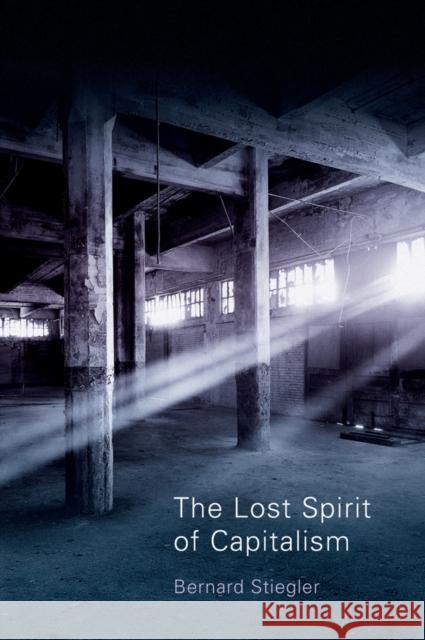The Lost Spirit of Capitalism: Disbelief and Discredit, Volume 3 » książka
The Lost Spirit of Capitalism: Disbelief and Discredit, Volume 3
ISBN-13: 9780745648132 / Angielski / Twarda / 2014 / 140 str.
The Lost Spirit of Capitalism: Disbelief and Discredit, Volume 3
ISBN-13: 9780745648132 / Angielski / Twarda / 2014 / 140 str.
(netto: 242,00 VAT: 5%)
Najniższa cena z 30 dni: 254,10
ok. 30 dni roboczych
Bez gwarancji dostawy przed świętami
Darmowa dostawa!
Max Weber famously argued that the rise of capitalism in early modern Europe was premised on the emergence of a distinctive set of attitudes - including the pursuit of profit for its own sake - which he called 'the spirit of capitalism'. Today, when capitalism has spread across the globe, the spirit of capitalism would appear to reign supreme.
In this important book Bernard Stiegler takes a very different view: what we are witnessing today is not the triumph of the spirit of capitalism but rather its demise, as our contemporary 'hyper-industrial' societies become increasingly uncontrollable, profoundly irrational and incapable of inspiring hope. Disenchantment and despair have become the everyday lived experiences of countless individuals. Far from being a moment of liberation, May '68 was just the first symptom of our increasing disenchantment and 'spiritual misery'. The libidinal energy that originally underpinned capitalism has become an unbound force, unleashing drives that can no longer be contained.
Is there an alternative? Stiegler argues that the development of alternatives must begin with a new industrial policy, designed to recognize that technologies are what Plato called pharmaka, meaning both poison and cure. Industrial society has a future only if we can create technologies that foster relations of care (otium) for people whose spirit has been exhausted by contemporary consumerism. We must develop an ecology not only to protect the planet but also to renew the exploited energies of human desire.
This volume - the third in a trilogy that includes The Decadence of Industrial Democracies and Uncontrollable Societies of Disaffected Individuals - will consolidate Stiegler's reputation as one of the most original philosophers and cultural theorists of our time.
Max Weber famously argued that the rise of capitalism in early modern Europe was premised on the emergence of a distinctive set of attitudes – including the pursuit of profit for its own sake – which he called ‘the spirit of capitalism’.











